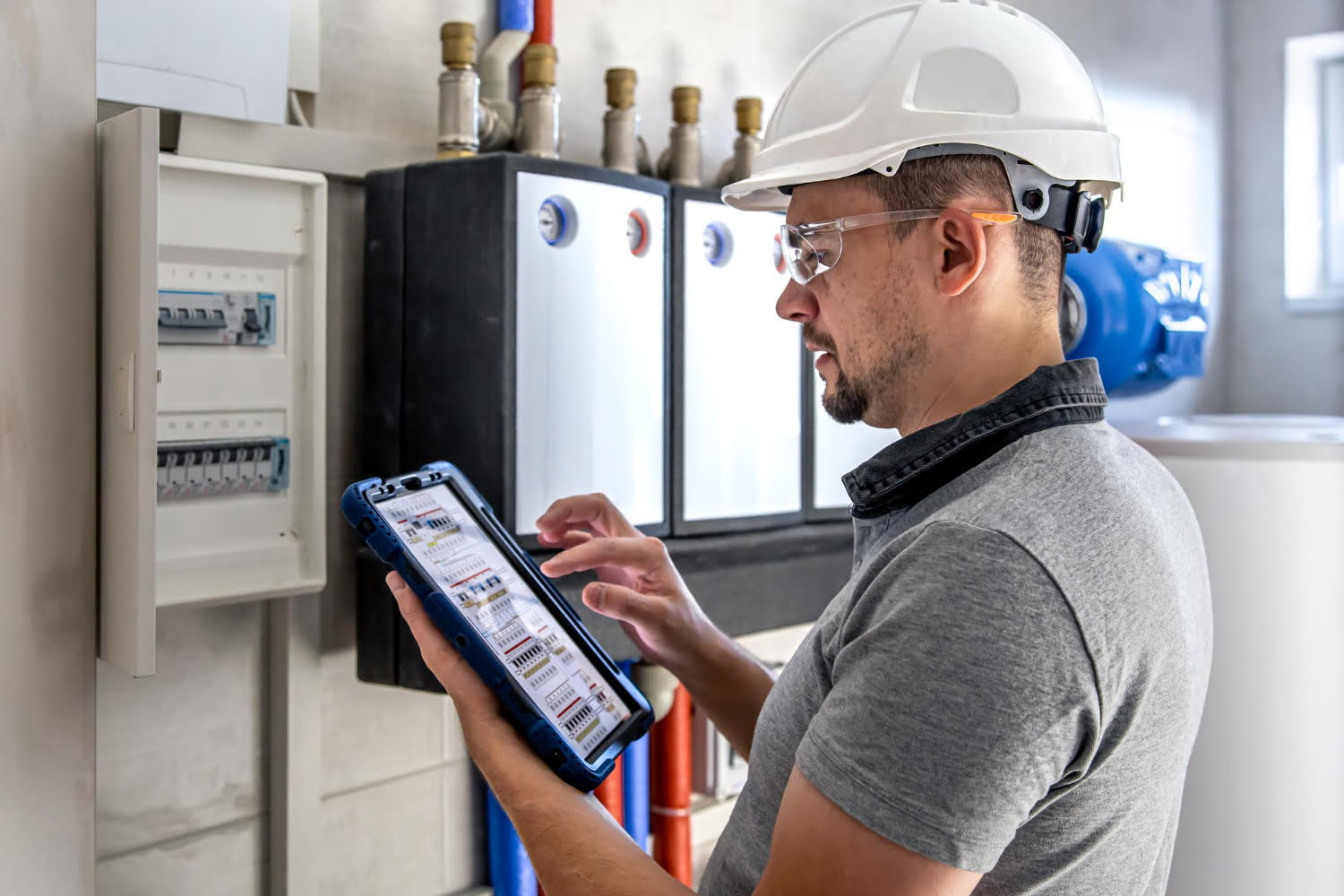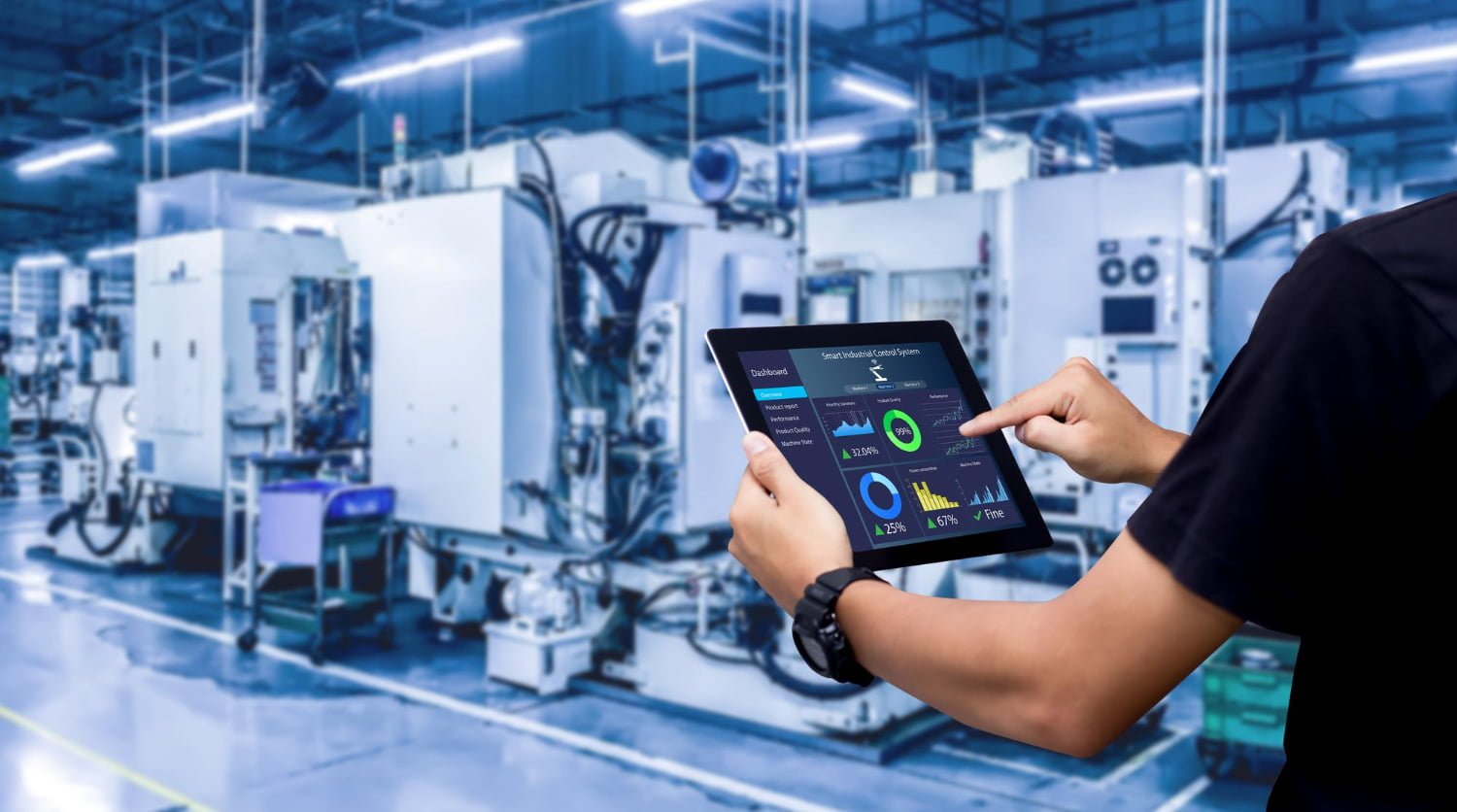TEMPERATURE CONTROL SYSTEMS
When you choose JMI Mechanical, you’re getting skilled and friendly technicians with a trustworthy brand and reputation. We take pride in our work because we genuinely enjoy what we do, and it reflects in our service!
Mechanical and HVAC Temperature Control Systems
Temperature control is a critical aspect of mechanical systems, particularly in Heating, Ventilation, and Air Conditioning (HVAC) systems. These systems play a crucial role in regulating indoor temperatures to ensure comfort, efficiency, and environmental sustainability.

Components of HVAC Temperature Control Systems
HVAC temperature control systems consist of various components, each serving a specific function:
- Thermostats: Thermostats are devices that sense the temperature of a system and activate heating or cooling mechanisms to maintain the desired temperature.
- Sensors and Detectors: Sensors and detectors monitor temperature levels and detect changes, allowing the system to adjust accordingly.
- Dampers and Valves: Dampers and valves regulate the flow of air or fluids within the HVAC system, controlling the distribution of temperature throughout a space.
- Control Panels: Control panels serve as the central command hub, allowing users to set temperature preferences and monitor system performance.
Types of HVAC Temperature Control Systems
HVAC systems can be categorized into various types based on their functionality:
Single-Zone Systems: Single-zone systems regulate the temperature within a single area or zone, providing uniform heating or cooling throughout.
Multi-Zone Systems: Multi-zone systems allow for independent temperature control in different areas or zones within a building, catering to varying comfort preferences.
Variable Air Volume (VAV) Systems: VAV systems adjust airflow based on demand, optimizing energy usage and enhancing comfort levels.
Direct Digital Control (DDC) Systems: DDC systems use digital technology to control temperature, airflow, and humidity levels precisely, offering superior efficiency and performance.


Working Principles
Here at JMI Mechanical, our operation of HVAC temperature control systems is based on fundamental principles:
- Temperature Sensing and Measurement: Sensors and probes detect temperature variations, providing data for the system to regulate heating and cooling processes.
- Regulation of Airflow and Ducting: Dampers and valves adjust airflow rates and redirect air through ductwork to achieve the desired temperature distribution.
- Heat Exchange and Cooling Mechanisms: Heat exchange mechanisms, such as coils and refrigerants, facilitate the transfer of heat, enabling cooling or heating as needed.
- Integration with Building Management Systems (BMS): HVAC systems often integrate with BMS platforms, allowing for centralized control and optimization of building-wide temperature settings.
Benefits of Advanced Temperature Control
Advanced temperature control in HVAC systems offers several benefits:
- Energy Efficiency: Precise temperature regulation reduces energy consumption and lowers utility costs, contributing to sustainability efforts.
- Cost Savings: Efficient HVAC systems result in lower operational expenses and reduced maintenance requirements, saving money in the long run.
- Comfort and Air Quality: Optimal temperature control enhances indoor comfort and ensures a healthy environment by maintaining proper humidity levels and air circulation.
- Sustainability: By minimizing energy waste and reducing carbon emissions, advanced temperature control supports environmentally friendly practices.
Applications in Different Industries
Temperature control systems for HVAC have wide-ranging applications across various sectors.
- Commercial Buildings: Office buildings, retail spaces, and hospitality establishments depend on HVAC systems to provide occupants and customers with comfortable environments. These systems ensure optimal conditions, enhancing the overall experience for everyone involved.
- Industrial Facilities: Manufacturing plants and warehouses utilize HVAC systems to regulate temperatures for product quality control and employee comfort.
- Healthcare and Laboratory Environments: Hospitals, clinics, and research facilities require precise temperature control to maintain sterile conditions and preserve sensitive equipment.
Challenges and Solutions
Heating, ventilation, and air conditioning (HVAC) temperature control systems have unique challenges that need attention. It’s important to regularly maintain and calibrate these systems for the best performance. Integrating them with existing infrastructure may require careful planning and coordination. But with advancements like smart sensors and automation, we can improve efficiency and functionality. Additionally, we may need to adjust the settings based on climate changes. By addressing these challenges proactively, we ensure that HVAC systems work effectively and reliably in healthcare and laboratory environments. Trust us for excellent HVAC solutions.
Future Trends in HVAC Temperature Control
New technologies and clever ideas are shaping the future of HVAC temperature control:
- Smart HVAC Systems: These systems use connections and data analysis to work better and make users happier.
- Internet of Things (IoT) Integration: By hooking up with the internet, HVAC systems can be watched and controlled from far away, which saves energy and makes them more responsive.
- Energy-Efficient Innovations: New parts and renewable energy sources are making HVAC systems kinder to the environment.
Artificial Intelligence in Temperature Control:
Using advanced computer programs and smart analysis, artificial intelligence (AI) helps manage systems better and adjust temperatures as needed.
Considerations for Choosing Systems:
When picking HVAC systems to control temperatures, think about a few things:
- System Size and Capacity: Make sure to get the right size and power for your needs. This way, the system works well and saves energy.
- Environmental Impact: Look for options that are good for the environment. Choosing eco-friendly solutions helps cut down on pollution and supports efforts to keep the planet healthy.
- Cost and Budget: Balance how much the system costs upfront with how much it saves in the long run; this helps you manage your budget while getting the best system for your money.
- Integration with Existing Systems: Make sure the new system works well with what you already have in place; this makes installation easier and helps everything run smoothly.
Installation and Maintenance Best Practices
When it comes to making sure your HVAC (Heating, Ventilation, and Air Conditioning) system lasts long and works well, there are some important things to keep in mind:
- Get Professional Help for Installation
- It’s a good idea to have experts install your HVAC system. They know how to set it up correctly for your specific space.
- Schedule Regular Check-ups and Tune-ups
- Having your system checked and tuned up regularly can catch problems early and make sure everything is working as it should.
- Keep Software Updated
- Just like your phone or computer, your HVAC system might need software updates. These updates give you access to new features and help keep your system safe and reliable.
- Have Emergency Plans in Place
- Sometimes, things can go wrong with your HVAC system. Having plans in place for emergencies can help minimize any disruptions and get things back to normal quickly.
By following these best practices, you can ensure that your HVAC system keeps your home comfortable for years to come.
WHY CHOOSE US?
Mechanical and HVAC temperature control systems are important parts of modern buildings. They help make indoor spaces comfortable, efficient, and eco-friendly. By learning about how these systems work and their advantages and difficulties, people can make smart choices to improve indoor environments and reduce their impact on the environment.
By choosing JMI Mechanical, you’re making a smart decision to keep things running smoothly and efficiently. Call us today!
FREE QUOTE
Do you need help with HVAC or Plumbing service or maintenance? Fill out this form to get in touch with JMI Mechanical.
OFFICE LINE
ADDRESS
5610 Dividend Rd Suite A, Indianapolis, IN 46241
WORKING HOURS
OPEN 24/7/365
OFFICE LINE
+1 317-243-7180
ADDRESS
5610 Dividend Rd Suite A, Indianapolis, IN 46241
WORKING HOURS




